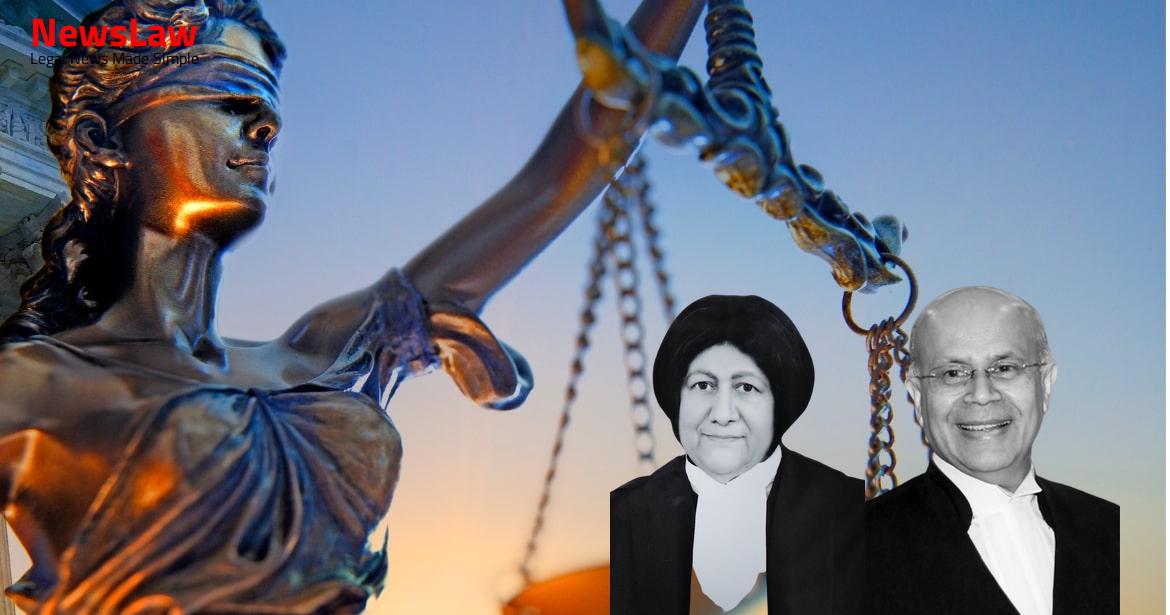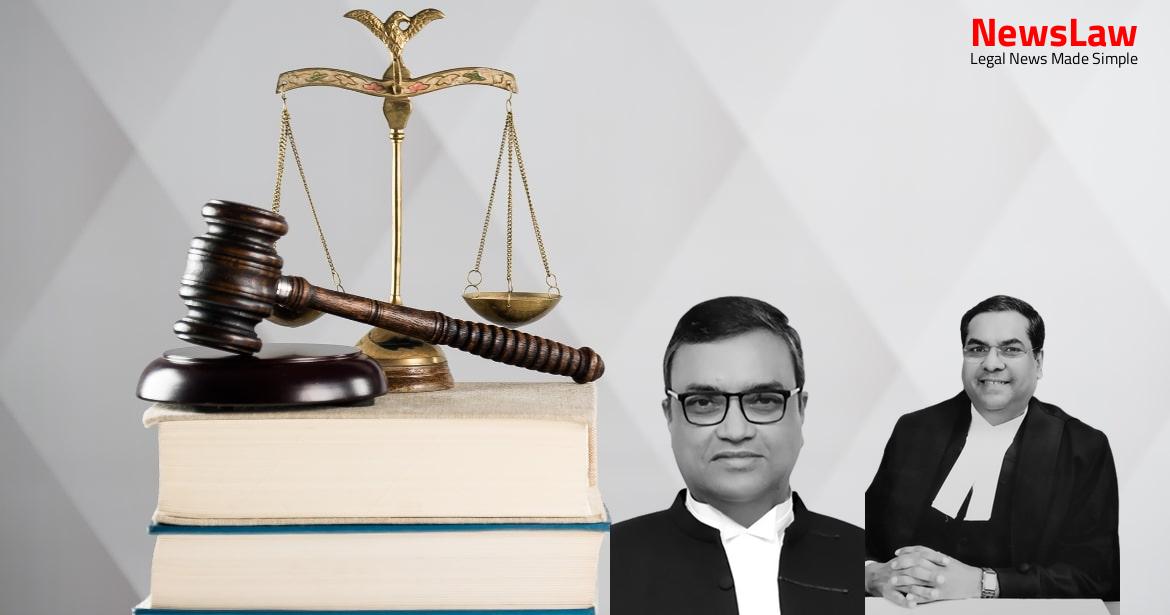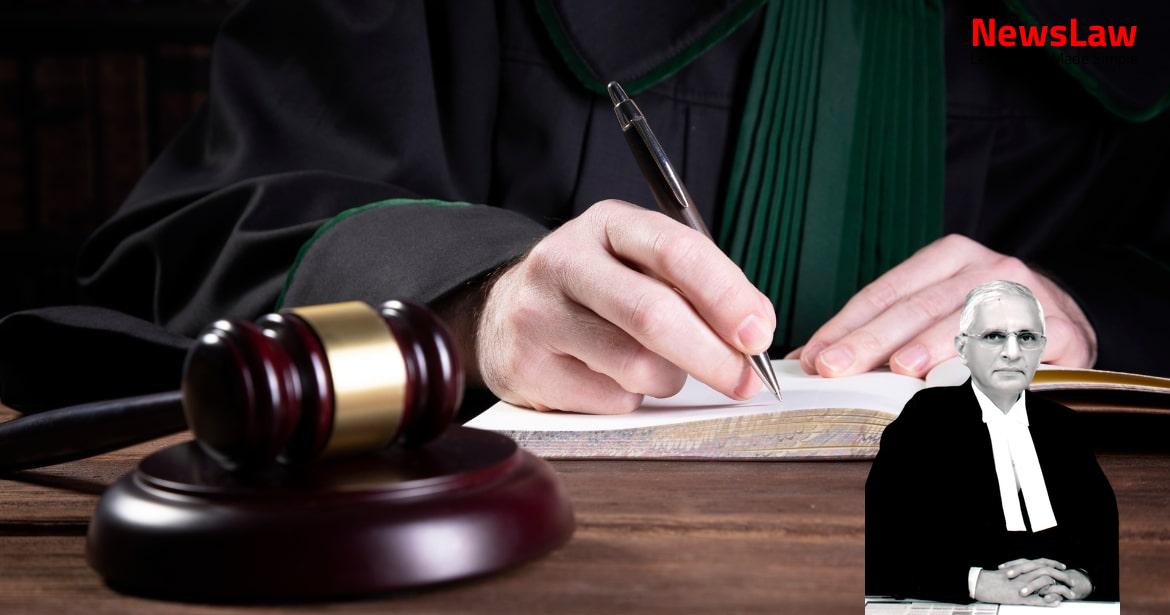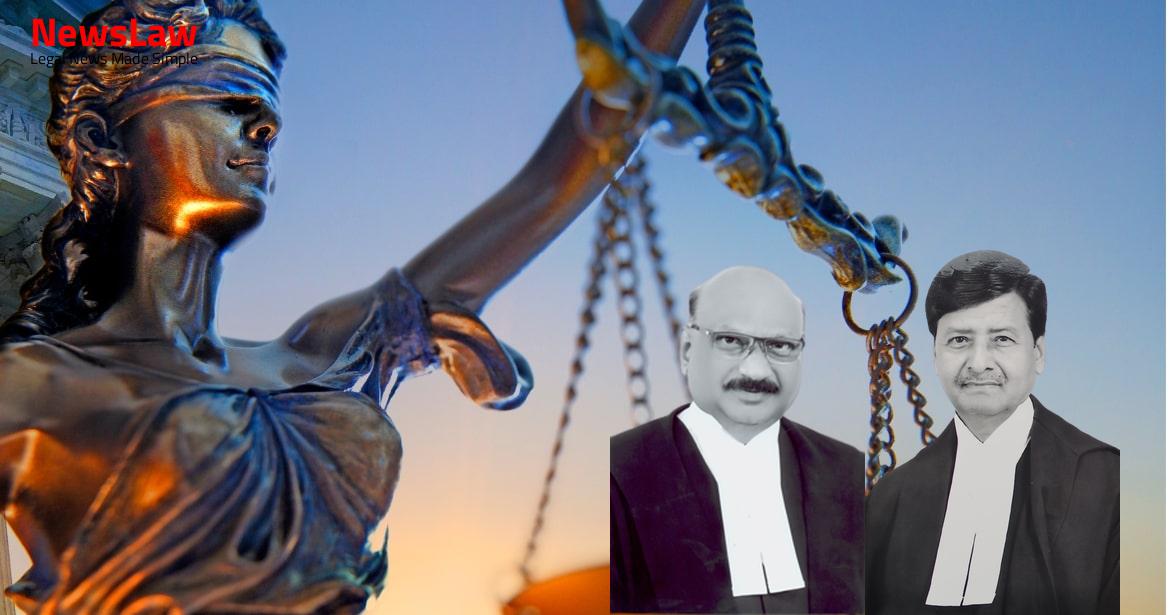This blog delves into the court’s meticulous legal analysis regarding the interpretation of taxability under Section 28(ii) of the Income Tax Act. The focus is on the nuances of the law and how the court approached the complex taxation issues in the case. Stay tuned to unravel the intricacies of tax law through the lens of the court’s judgment.
Facts
- Shri Shiv Raj Gupta and his son Shri Jayant Gupta will resign as Chairman and Managing Director and as Joint Managing Director of CDBL by 13.04.1994.
- The Supreme Court’s Order dated 11.03.1994 suspended the manufacturing activity at the Meerut plant until a secondary effluent treatment plant is installed and operational.
- The family members’ shareholding in CDBL is detailed, totaling 1,86,109 shares among the appellant and his family.
- The appellant, Shri Shiv Raj Gupta, was the Chairman and Managing Director of CDBL which had a manufacturing unit in Meerut for beer and IMFL.
- A Memorandum of Understanding dated 13.04.1994 was made between the appellant and three SWC group companies for the sale of a controlling block of shares in CDBL.
- The sale was made at INR 30 per share, higher than the listed market price of INR 3 per share. Physical possession, management, and control were handed over to the SWC group.
- Nominees of the SWC group were to be made directors by 13.04.1994 to constitute a majority on the board. The company had 350 employees in the factory and around 25 staff in other offices.
- The High Court disagreed with the Assessing Officer and the minority judgment of the Tribunal regarding the treatment of the sum of INR 6.6 crores.
- The High Court concluded that the sum should be treated as taxable capital gain in the hands of the appellant, part of the full value of sale consideration for the transfer of shares.
- The Deed of Covenant was considered a colorable device to evade tax and the amount was brought to tax under Section 28(ii)(a) of the Income Tax Act, 1961.
- There was no penalty clause in the Deed of Covenant to enforce obligations, leading to the conclusion that it was a colorable device to evade tax.
- The learned Accountant Member held that the non-compete fee under the Deed of Covenant was not taxable under Section 28(ii)(a) or any other provision of the Income Tax Act, 1961.
Also Read: Legal Analysis on Physical Ability in Rape Case
Issue
- The issue in this appeal revolves around the interpretation of Section 28(ii) of the Income Tax Act, 1961.
- The main question is whether the receipt of Rs.6.6 crores by the respondent as a non-competitive fee falls under Section 28(ii) or Section 28(iv of the Income Tax Act.
- There is a debate on whether the deed of covenant involved contains a bona fide restrictive covenant or is part of a sham transaction to compensate for terminating management of CDBL.
- The substantial questions of law include determining the nature of the 6 crores received in relation to the covenant deed and if it is a taxable amount under Section 28(ii)(a) of the Income Tax Act.
Also Read: Legal Analysis on Admissions and Document Consideration in Insolvency Case
Arguments
- The revenue preferred an appeal under Section 260-A of the Income Tax Act, 1961 to the High Court.
- They relied upon the judgment of the learned Accountant Member and the third Member in favor of the assessee, emphasizing the sale of a share worth INR 3 for INR 30 due to the transfer of control of the CDBL.
- They raised the preliminary submission that only substantial questions of law framed under Section 260-A can be answered.
- Cited judgments to show that prior to 01.04.2003, any sum received under an agreement for not carrying out any activity related to business was taxed under Section 28(va), which is not retrospective.
- Shri Arijit Prasad adopted the reasoning of the Assessing Officer and the first learned Judicial Member.
- Shri Arvind Datar and Shri Ajay Vohra represented the appellant and presented the orders of the Income Tax Authorities, Appellate Tribunal, and the High Court judgment.
Also Read: Analysis of Transfer of Winding Up Proceedings to NCLT
Analysis
- The High Court went ahead and held that the amount received by the assessee was part of the full value of sale consideration paid for transfer of shares and not for handing over management and control of CDBL, hence not taxable under Section 28(ii)(a) of the Income Tax Act.
- The Finance Act, 2002 made the capital receipt taxable under Section 28(v-a), changing the taxability status of compensation received under a non-competition agreement.
- The contention that the quoted price of each share was only Rs. 3 and not Rs. 30 as declared is fallacious.
- The Income Tax Appellate Tribunal had a differing opinion on whether the amount received should be taxed.
- The minority judgment of the Appellate Tribunal and reasons given by the Assessing Officer transgressed the judgement stating that revenue cannot second guess business expediency of parties.
- The High Court failed to address whether the non-compete fee could be taxed under any provision other than Section 28(ii)(a).
- The Deed of Covenant and MoU indicated a non-compete fee of INR 6.6 crores paid to the assessee which was treated as a capital receipt till Assessment Year 2003-2004.
- The Assessing Officer’s perception that the assessee was not a probable threat to the SWC group was questioned as it could not replace business reality from the assessee’s perspective.
- The High Court misinterpreted the judgement in the Gillanders case and did not follow proper procedure in framing substantial questions of law.
- The SWC group’s marketing efforts could have led to increased turnover, as mentioned in a letter dated 26.03.1998.
- An appeal to the High Court can only be filed if the case involves a substantial question of law.
- The memorandum of appeal must clearly state the substantial question of law involved.
- The High Court must be satisfied and formulate the substantial question of law before admitting or entertaining the appeal.
- The appeal shall be heard only on the formulated questions of law, and the respondent can argue only on those questions.
- If the High Court wishes to hear the appeal on other substantial questions of law not originally formulated, it can do so for recorded reasons.
- The Appellate Tribunal can determine whether the alleged payment is real or not and if it is incurred wholly and exclusively for the business of the assessee.
- The Tribunal should not decide the remuneration that should be paid to an employee of the assessee.
- Expenditure claimed under Section 10(2)(xv) must be wholly and exclusively for the purpose of the business.
- Reasonableness of the expenditure must be judged from the perspective of a businessman, not the Income Tax Department.
- The Revenue cannot assume the role of deciding what is a reasonable expenditure for the business.
- Judgment in various cases emphasized that commercial expediency should be assessed from the point of view of the assessee.
- The Revenue cannot dictate how much is reasonable expenditure from its own viewpoint.
- The Tribunal must consider the payment made under commercial expediency and the purpose of the business.
- The High Court erred in interfering with the concurrent findings of fact recorded by CIT (A) and the Tribunal.
Decision
- Mr. Gupta agreed not to engage in manufacturing, dealing, supplying, or marketing of Indian Made Foreign Liquor (IMFL) and/or Beer.
- The balance amount of Rs. 60,00,000 to be paid to Mr. Gupta by SWC on 31 October, 1994.
- The covenant remains binding for 10 years and is irrevocable.
Case Title: SHIV RAJ GUPTA Vs. COMMISSIONER OF INCOME-TAX, DELHI IV (2020 INSC 461)
Case Number: C.A. No.-012044-012044 / 2016



